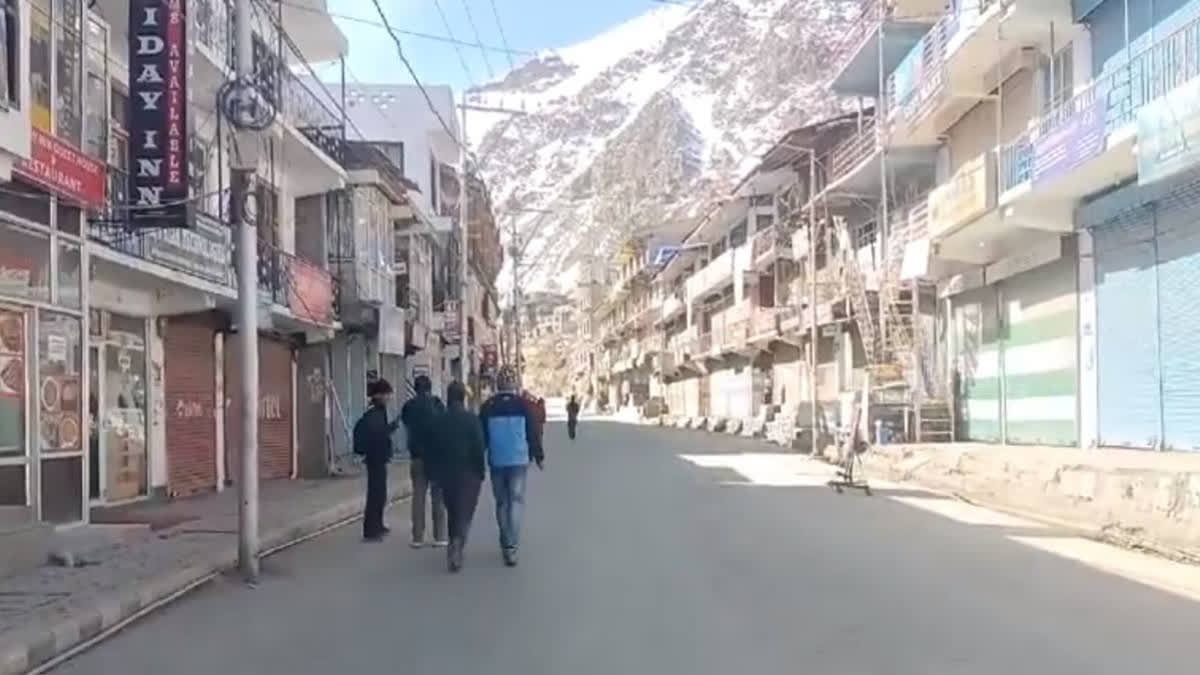Srinagar: As the Lok Sabha elections draw closer, political parties across the country commenced their public outreach campaign. However, amidst this electoral fervour, leaders in the Ladakh Union Territory are intensifying their protest to advocate for Statehood and Sixth Schedule status for the region.
Recently, the Kargil Democratic Alliance (KDA) and The Leh Apex Body (LAB) held a joint meeting to devise new strategies to push forward their demands. According to a senior Ladakhi leader, who attended the meeting, while no definitive decisions were reached during the two-hour session, discussions revolved around amplifying the agitation for Statehood and Sixth Schedule status. Additionally, both bodies are contemplating a potential boycott of the upcoming Parliamentary elections.
The leaders are expected to consult stakeholders and reconvene before making a final decision on their course of action. The lone Lok Sabha seat in the UT of Ladakh is slated for polls in the fifth phase on May 20. Notably, this seat was secured by the BJP in both the 2014 and 2019 elections when Ladakh was part of the erstwhile State of Jammu and Kashmir.
Meanwhile, Sonam Wangchuk's climate fast has entered its 18th day. On Saturday, Wangchuk stated that 2000 people are fasting alongside him. Expressing concerns over the influence of industrial lobbies on the government, Wangchuk emphasised the need for citizens to voice their concerns. He highlighted the environmental challenges faced by Ladakh and urged the government to honour its commitments to safeguard the region's mountains, glaciers and indigenous cultures under the Sixth Schedule of the Indian Constitution.
"Good morning, world! Today marks the beginning of my 18th day of climate fasting on water and salt. It's been a very clear night, and therefore temperatures have dropped to minus 8 degrees Celsius, causing everything to freeze. Despite these harsh conditions, around 150 people slept outside with me to remind the Indian government of the promises they made to safeguard Ladakh, its mountains, and its indigenous cultures under the sixth schedule of the Indian constitution," he conveyed in his 3:52-minute video message.
He elaborated, "This schedule provides autonomy through an autonomous council where the elected body of indigenous people decides how to manage these mountains, what kind of development and industries to allow, and what not to. Without this, we have no rights whatsoever, and decisions are left to a bureaucracy."
Addressing the issue of growth, he emphasised, "In the name of development, we exploit the mountains and destroy our habitat, including the glaciers and the rich flora and fauna existing here. While we boast of 8 percent or 10 per cent growth as the best thing for the nation, we must realise that we are not the only inhabitants of this beautiful planet. We have other siblings, those in the wild. Let's take a moment to consider what's happening to them while we talk of growth. According to the WWF (World Wildlife Fund), there has been a 69% average decline in wildlife population since 1970. Eighty-three percent of aquatic life has been wiped out from the planet in the last 50 years alone, and 30 per cent of forests, upon which we depend so much, have been destroyed."
"While we discuss growth rates of 8% or 10%, their very existence is threatened. It doesn't just harm them; we depend on them. Without our fellow inhabitants, this planet will resemble Mars or the moon, and it will spell our end very soon," he added.
In his appeal for support in the protest, he urged, "If humanity wishes to endure on this planet, we must learn to coexist harmoniously with nature. This is why we implore you to stand up while there's still time to save Ladakh, protect the glaciers, preserve the Himalayas, and ultimately, safeguard our planet. We invite you to join our cause. Thank you very much, and have a great day. Jai Hind."



